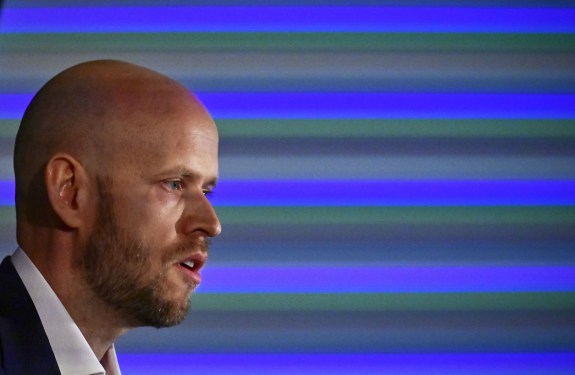The Bedrock of Human Interaction
Trust is the foundation upon which human relationships, business dealings, and societal structures are built. In today’s rapidly evolving digital world, however, we face a pressing challenge: How do we scale trust beyond our immediate circles?
Consider the simple act of meeting someone new at a conference. These encounters are more than just casual conversations – they’re the seeds of trust being planted between two people. Conferences, meetups, and introductions in chat groups serve as coordination mechanisms, bringing previously unconnected people or companies together and facilitating the growth of these trust seeds.
The value of these trust-building interactions cannot be overstated. They can lead to discovering your next business partner, friend, employee, or investor. Trust and the coordination mechanisms that facilitate its growth are critical for creating new positive value in our personal and professional lives.
The Challenge: Scaling Trust
We face a significant hurdle: trust doesn’t scale. It’s bound by age-old biological human limitations – the time it takes to build trust and the size of our trust networks, reminiscent of Dunbar’s number. This constraint has long been a bottleneck in our increasingly interconnected world.
Market Makers Beyond Financial Markets
Value is created when supply and demand meet and an exchange of value is created, similar to how market makers in liquid markets facilitate and connect between a sell order on one end and a buy order on the other. Think of the function Uniswap serves as an automatic market maker – a smart contract that facilitates value creation by coordinating price discovery and token exchange.
We could potentially enable the same value for less tangible stuff, like business opportunities and professional relationships. It’s tough to imagine that happening. It’s difficult because trust is not something that you can scale very quickly.
Scaling Trust: The Next Frontier
Enter onchain reputation, a concept that could extend trust through provable, irrevocable, verifiable credentials. Consider a future where our reputation exists on a blockchain, immutable and transparent. The things we know, places we’ve been, things we built, products we bought, people we know, and most importantly, in this context, people we trust or who trust us.
Recent research suggests that:
- Web3 Adoption: Web3 adoption is expected to increase significantly over the next few years, with more users opting for decentralized solutions.
- Decentralized Identity Management: Decentralized identity management systems are being developed to provide secure and transparent digital identities.
- Blockchain-based Reputation Systems: Blockchain-based reputation systems are emerging as a way to establish trust online.
Onchain Reputation: Unlocking New Possibilities
Onchain reputation can come into play when we’re thinking about scaling trust problems in a structured and programmable manner. We’re not starting from scratch, though. We already carry a substantial backlog of offchain reputation, compiled from real-life relationships and various platforms and apps we use daily.
People with whom we work or have social relationships, for one. Then, our social graphs on networks like Facebook, LinkedIn, Twitter, TikTok, and Instagram, and our work-related profiles on marketplaces like Fiverr and Upwork. Consider the inclusion of our consumer scores from loyalty programs at Starbucks or driver scores on Uber. These could all contribute toward our digital reputation.
Bridging Web2 and Web3
The challenge lies in bridging this Web2 reputation with the emerging Web3 ecosystem. That is where innovations like web proofs, powered by zkTLS technological development, come into play, offering a means to verify Web2 data and make it accessible on Web3 rails.
In this new paradigm of onchain reputation, we could use our reputation to access personalized discounts and unique offers delivered directly to our digital wallets, monetize the value of the data we create through DataDAOs, and uncover hidden business opportunities by analyzing who should interact with whom, based on indirect and direct trust relationships.
A Tokenized Future
The future is undeniably onchain. Everything that can be tokenized will be tokenized. By embracing onchain reputation, we’re not just solving the problem of scaling trust – we’re unlocking a new frontier of human interaction and value creation.
As we navigate this new landscape, it’s essential to consider:
- Security: Ensuring the security of our digital identities and reputations is crucial in a decentralized system.
- Interoperability: Developing systems that can seamlessly interact with each other will be key to widespread adoption.
- Regulation: Governments and regulatory bodies are starting to take notice of Web3 and its potential. Understanding their roles and responsibilities will be vital.
Conclusion
The future of trust is onchain, and it’s a future filled with possibilities. By embracing onchain reputation, we can unlock new levels of human interaction and value creation. As we continue to explore this new frontier, we must prioritize security, interoperability, and regulation.
Explore more articles like this by subscribing to our Crypto Biz newsletter. Weekly snapshot of key business trends in blockchain and crypto, from startup buzz to regulatory shifts. Gain valuable insights to navigate the market and spot financial opportunities. Delivered every Thursday.
Subscribe to our Crypto Biz newsletter now and stay ahead of the curve!






